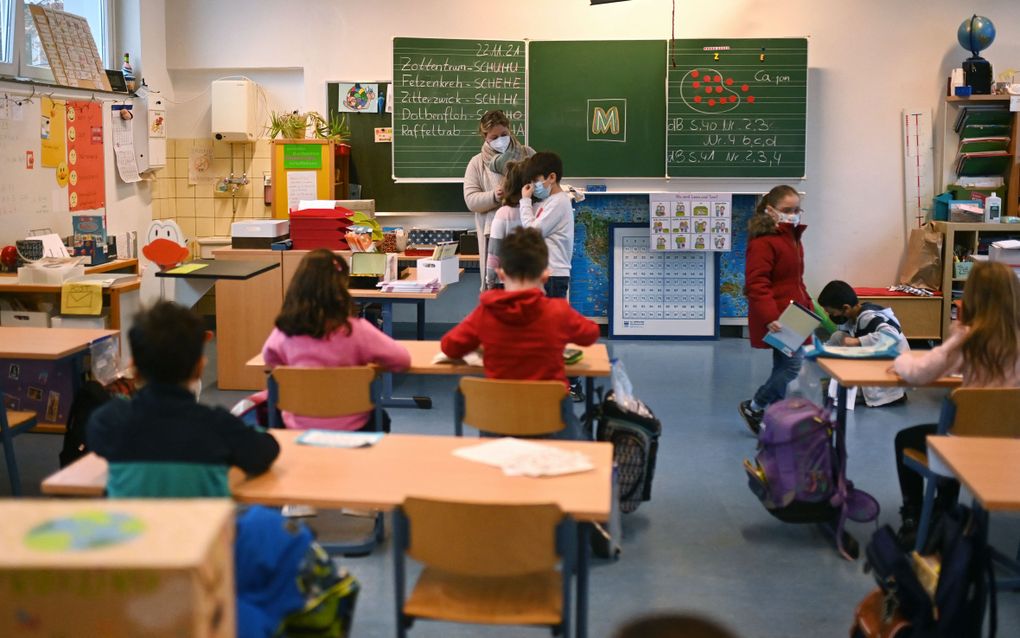Ethics education has reduced religiosity in Germany
12-01-2022
Central Europe
CNE.news

Children of a school class attend a lesson in their classroom at the Petri primary school in Dortmund, western Germany, on November 23, 2021. Photo AFP, Ina Fassbender
Central Europe
The abolition of religious education as a compulsory subject in the ‘70s has led to a decline in religiosity among adolescents in Germany. This is the result of a study by the Institute for Economic Research (Ifo).
In addition to general religiosity, the probability of praying or being a church member has also decreased, reports the German evangelical news agency Idea based on the study published on Tuesday by the Munich Institute.
The introduction of ethics education has also influenced marriage and the division of labour between men and women. "After the introduction of ethics education, traditional attitudes towards the division of gender tasks and the necessity of marriage were pushed back," the weekly magazine Junge Freiheit quotes economist Benjamin Arold. He wrote the study together with his colleagues Ludger Woessman and Larissa Zierow.
Birth rate
As a result of the education reform, the number of marriages and new-born children has decreased, while labour market participation, working hours and wage levels have increased. It is reflected in the number of weddings (-1.5 percentage points) and births (-0.1 children). On the other hand, labour market participation (+1.5 percentage points), working hours (+0.6 hours per week) and wage levels (+5.3 per cent) increased.
The introduction of the subject did not influence general life satisfaction.
1,000 lessons
Since the 1970s, the old federal states have gradually replaced compulsory religious education with elective models with traditional religious and alternative ethics instruction. Before the reform, the respective Catholic or Protestant variant of religious education was prominent in the pupils' lives. During the entire school period, it comprised about 1,000 lessons, nearly four times as much as the physics lessons of the time.
The study was based on survey data from more than 58,000 adults who started school in West Germany between 1950 and 2004.
To assess the effects of ethics instruction on religiosity separately from the general social development, the researchers have evaluated the data from the federal states separately.


